
Ribeira: Porto's Riverside Gem
Ribeira is the beating heart of Porto, nestled along the northern bank of the Douro River. This historic neighborhood is a labyrinth of narrow, cobbled streets, colorful buildings, and a vibrant atmosphere that captures the essence of Portuguese culture. As you walk through Ribeira, you'll find an array of traditional shops, cafes, and restaurants, each offering a slice of local life and a taste of Porto's culinary delights. One of the highlights of Ribeira is its picturesque riverside promenade. Here, you can enjoy stunning views of the Douro River and the iconic Dom Luís I Bridge. The promenade is lined with outdoor cafes and bars, perfect for sipping on a glass of Port wine while watching the boats drift by. The area comes alive in the evening, with street performers and musicians adding to the lively ambiance. Ribeira is also home to many historical landmarks. The Church of São Francisco, with its impressive Gothic architecture and richly decorated baroque interior, is a must-visit. The Palácio da Bolsa, a former stock exchange, offers guided tours that showcase its magnificent rooms and the famous Arabian Hall. Don't forget to explore the Ribeira Square, a UNESCO World Heritage site, where you can admire the beautiful facades of the old houses and soak in the neighborhood's rich history.
Local tips in Ribeira
- Wear comfortable shoes as the cobbled streets can be uneven.
- Visit in the evening to experience the lively atmosphere with street performers and musicians.
- Take a boat tour along the Douro River for a unique perspective of Ribeira.
- Try the local seafood dishes at one of the riverside restaurants.
- Explore the side streets to find hidden gems and local shops.
Ribeira: Porto's Riverside Gem
Ribeira is the beating heart of Porto, nestled along the northern bank of the Douro River. This historic neighborhood is a labyrinth of narrow, cobbled streets, colorful buildings, and a vibrant atmosphere that captures the essence of Portuguese culture. As you walk through Ribeira, you'll find an array of traditional shops, cafes, and restaurants, each offering a slice of local life and a taste of Porto's culinary delights. One of the highlights of Ribeira is its picturesque riverside promenade. Here, you can enjoy stunning views of the Douro River and the iconic Dom Luís I Bridge. The promenade is lined with outdoor cafes and bars, perfect for sipping on a glass of Port wine while watching the boats drift by. The area comes alive in the evening, with street performers and musicians adding to the lively ambiance. Ribeira is also home to many historical landmarks. The Church of São Francisco, with its impressive Gothic architecture and richly decorated baroque interior, is a must-visit. The Palácio da Bolsa, a former stock exchange, offers guided tours that showcase its magnificent rooms and the famous Arabian Hall. Don't forget to explore the Ribeira Square, a UNESCO World Heritage site, where you can admire the beautiful facades of the old houses and soak in the neighborhood's rich history.
Iconic landmarks you can’t miss
Ribeira do Porto
Experience the vibrant atmosphere and stunning views of Ribeira do Porto, a scenic riverside gem in the heart of Portugal's Porto.
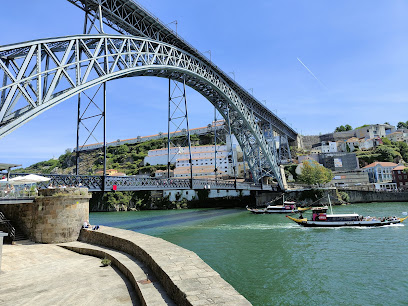
Episcopal Palace of Porto
Explore the Episcopal Palace of Porto, a magnificent baroque masterpiece offering stunning views and rich historical insights in the heart of the city.
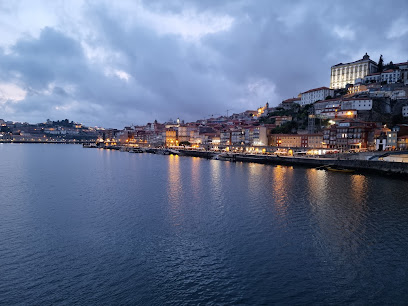
Muralha Primitiva do Porto
Explore the Muralha Primitiva do Porto, a historical monument offering stunning views and a glimpse into the past of Portugal's beautiful city.
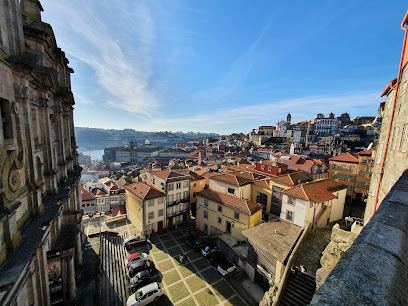
Monument Infante Dom Henrique
Discover the historic Monument Infante Dom Henrique in Porto, a stunning tribute to maritime exploration and a serene escape in lush gardens.
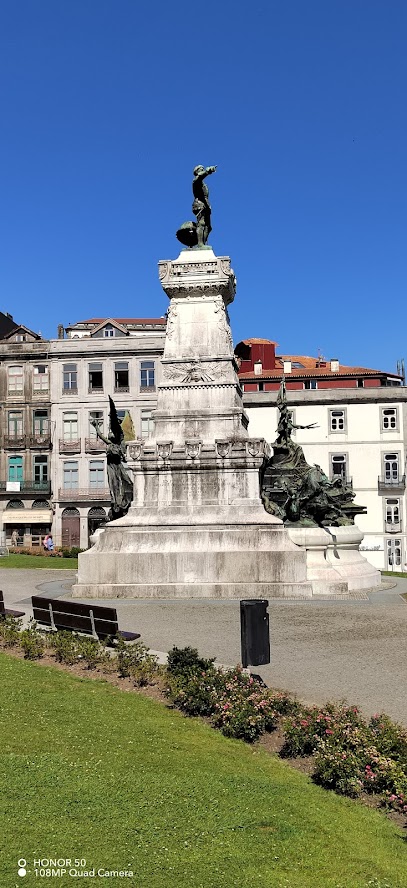
Torra de Rua
Experience the historical allure of Torra de Rua, a captivating landmark in Porto that embodies the city's rich heritage and stunning views.
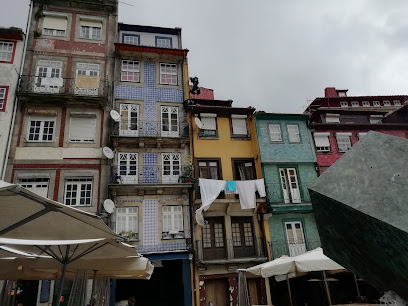
Praça da Ribeira
Experience the vibrant energy and stunning views of Praça da Ribeira in Porto, a must-visit scenic spot for every traveler.
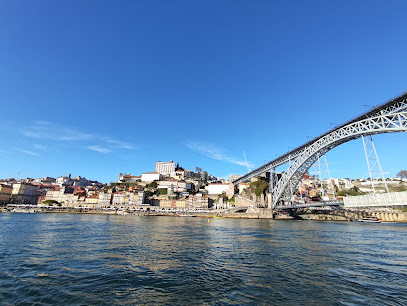
Fonte do Cubo
Discover the enchanting Fonte do Cubo, a sculptural gem in Porto's Praça Ribeira, where art meets history amidst vibrant local culture.
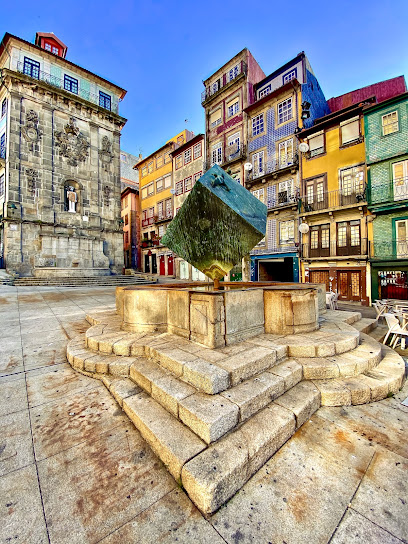
Fonte Monumental da Ribeira
Experience the charm and history of Porto at the enchanting Fonte Monumental da Ribeira, a must-see landmark in the heart of the city.
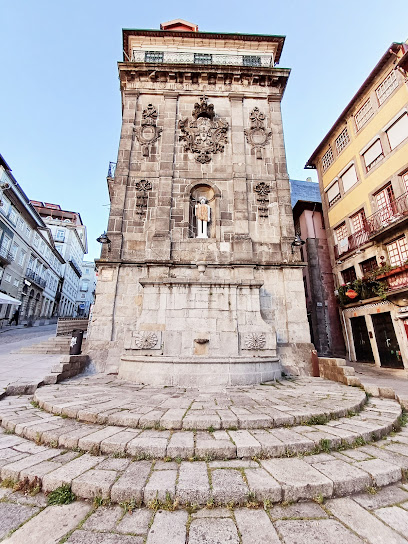
Chafariz do Anjo
Discover Porto's rich heritage at Chafariz do Anjo, a stunning Baroque fountain surrounded by vibrant culture and history.
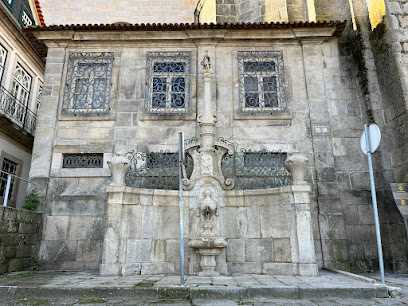
Judería de Porto
Discover the rich historical tapestry of Juderia de Porto, where captivating stories and stunning architecture await every traveler.
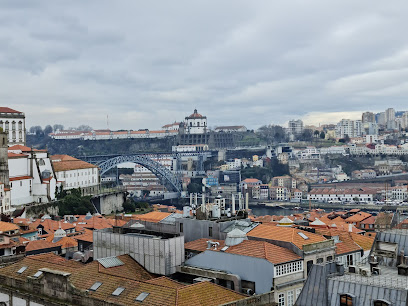
Unmissable attractions to see
Ribeira do Porto
Experience the vibrant atmosphere of Ribeira do Porto, where scenic beauty meets rich history along the Douro River in Porto, Portugal.
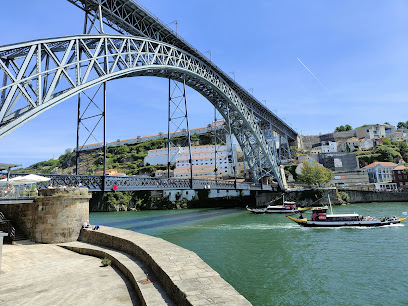
Praça da Ribeira
Discover the vibrant atmosphere and stunning views at Praça da Ribeira, Porto's picturesque riverside square filled with history and culture.
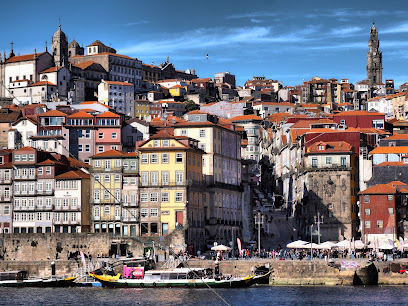
Fonte Monumental da Ribeira
Experience the charm of Porto at Fonte Monumental da Ribeira, a stunning monument surrounded by vibrant culture and history.
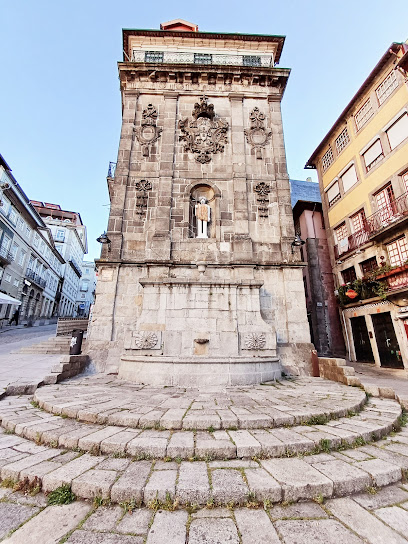
Postigo do Carvão
Discover the historical significance and architectural beauty of Postigo do Carvão, a must-see attraction along the Douro River in Porto, Portugal.
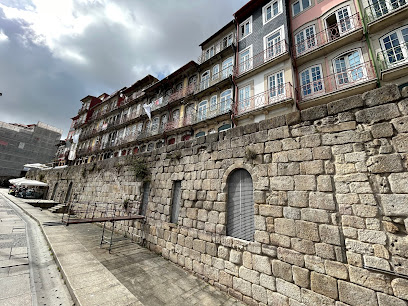
Miradouro do Passeio das Fontainhas
Experience the breathtaking panorama of Porto at Miradouro do Passeio das Fontainhas, a must-visit viewpoint for unforgettable city views.
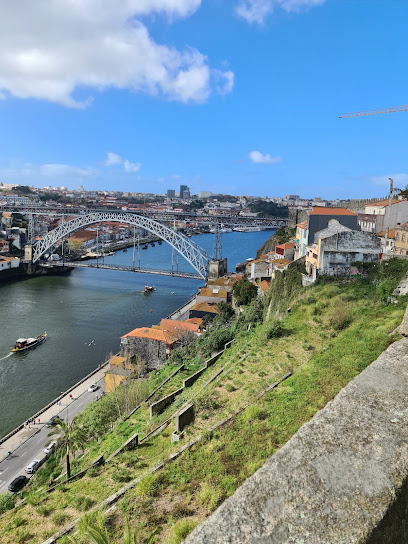
MARGEM DO RIO DOURO RIBEIRA
Explore the vibrant Margem do Rio Douro Ribeira, a picturesque promenade in Porto, where history, culture, and stunning river views await every visitor.
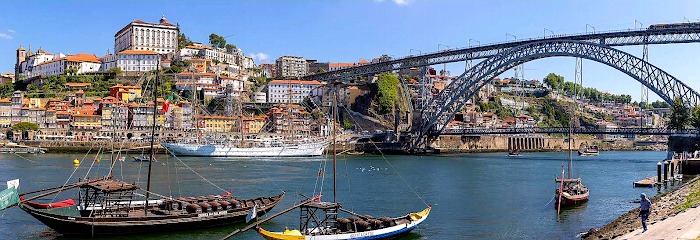
Miradouro Barredo e Jano
Experience breathtaking views of Porto's skyline at Miradouro Barredo e Jano, a must-visit scenic viewpoint in the heart of the city.
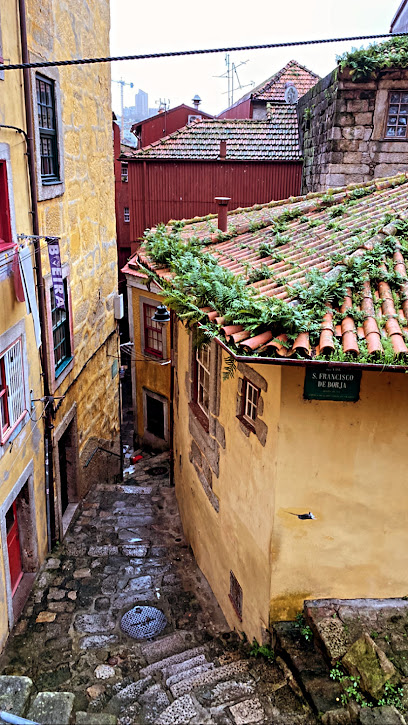
Duque - Homenagem da Cidade
Explore the Duque - Homenagem da Cidade in Porto, a striking monument celebrating the city's rich heritage with stunning riverside views.
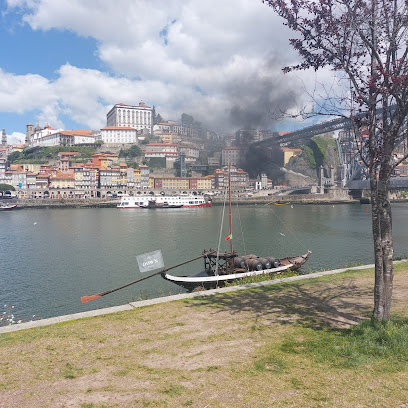
Sourie et renard
Discover the charm of Sourie et Renard in Porto, a serene tourist attraction perfect for immersing in local culture and stunning views.
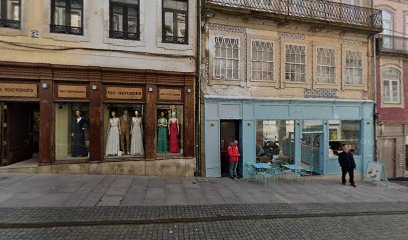
Essential places to dine
Ribeira Square Restaurante
Discover authentic Portuguese flavors at Ribeira Square Restaurante, overlooking Porto's stunning riverfront.
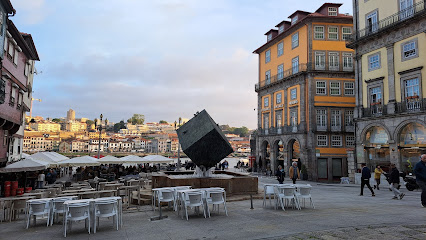
Taberna Dos Mercadores
Experience authentic Portuguese cuisine at Taberna Dos Mercadores in Porto – where tradition meets taste in every dish.
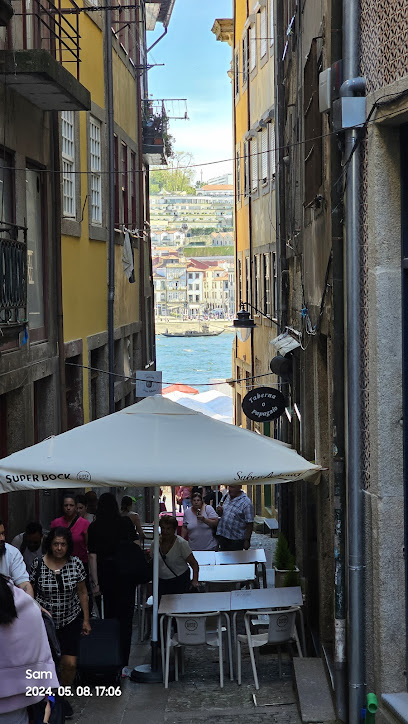
The Wine Box Porto
Discover exceptional Portuguese wines and tapas at The Wine Box Porto - where culinary tradition meets modern dining.
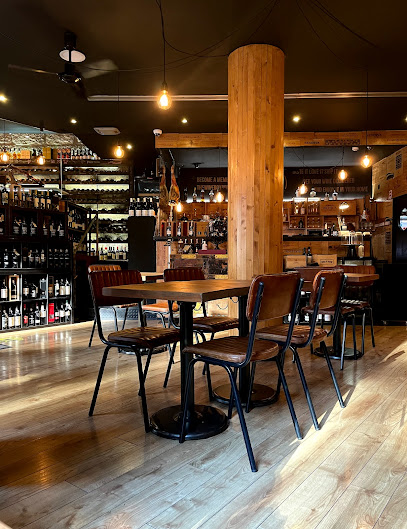
À Bolina
Experience authentic Portuguese cuisine at À Bolina in Porto - where tradition meets flavor in every dish.
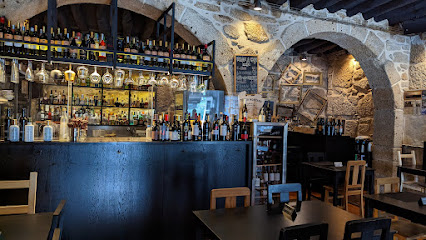
Jimão Tapas e Vinhos
Savor authentic Portuguese cuisine at Jimão Tapas e Vinhos in Porto – where every dish is a celebration of local flavors.
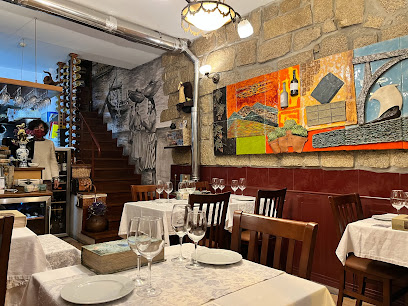
Ora Viva
Experience authentic Portuguese cuisine at Ora Viva in Porto – where flavor meets tradition in a cozy setting.
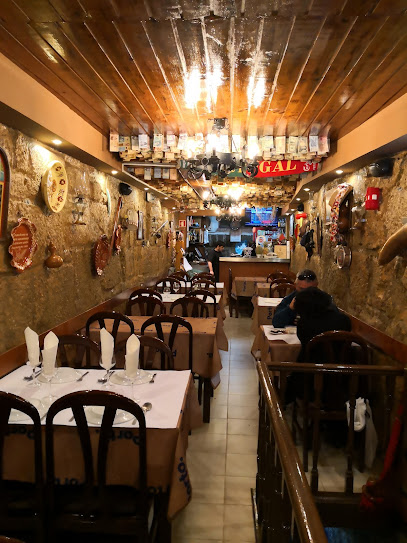
Porto Á Noite
Discover authentic Portuguese cuisine at Porto Á Noite - where flavor meets tradition in a cozy atmosphere.
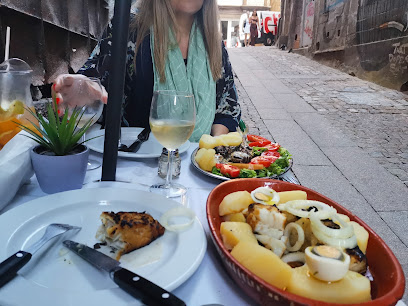
Terreirinho Restaurant
Experience authentic Portuguese flavors at Terreirinho Restaurant in Porto, where tradition meets taste in a cozy setting.
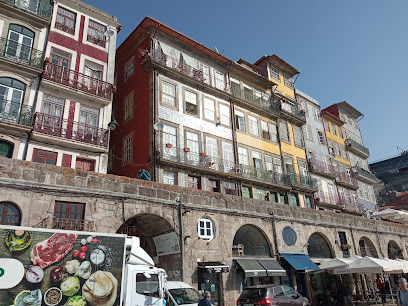
Fish Fish
Experience authentic Portuguese cuisine at Fish Fish in Porto – where fresh seafood meets delightful tapas amidst stunning riverside views.
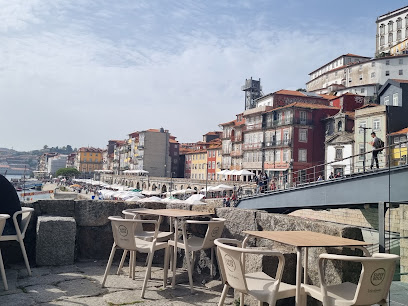
Ribeira Porto Centro
Experience authentic Portuguese cuisine with stunning river views at Ribeira Porto Centro - a culinary gem in the heart of Porto.
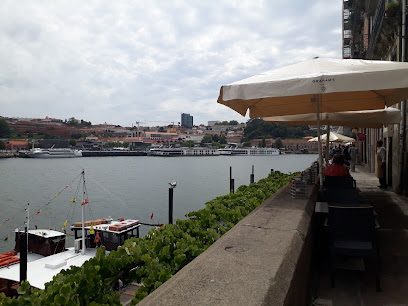
Markets, malls and hidden boutiques
The Feeting Room | Loios
Discover unique fashion and local artistry at The Feeting Room, Porto's chic boutique offering stylish clothing, accessories, and delightful café treats.
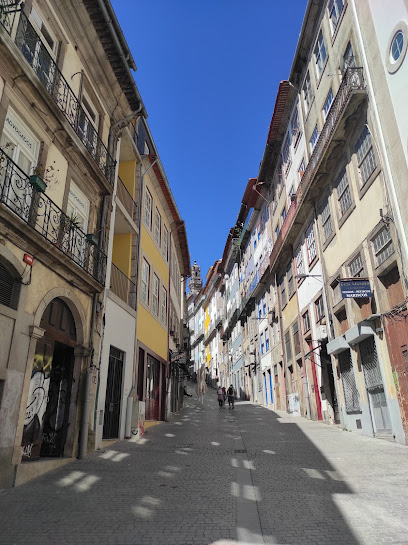
Porto Paixão
Discover unique souvenirs and local crafts at Porto Paixão, the premier gift shop in Porto, where every item tells a story of Portuguese heritage.
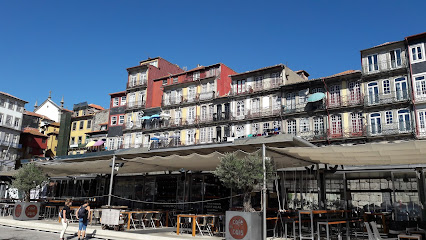
Coisas de Cá
Explore the vibrant world of Portuguese handicrafts at Coisas de Cá, a must-visit artisan hub in Porto with stunning ceramics and unique treasures.
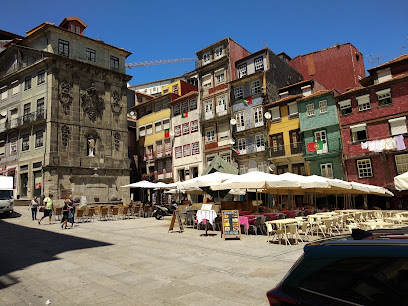
PORTO PASSION GIFT SHOP
Shop unique gifts and explore local tours at Porto Passion Gift Shop, the perfect blend of culture and adventure in the heart of Porto.
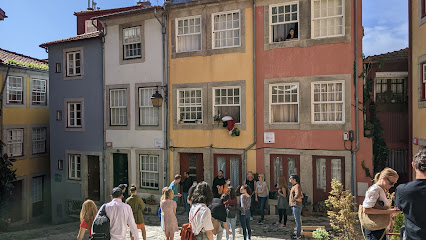
Ribeira souvenirs
Explore Ribeira Souvenirs for unique handcrafted gifts and authentic Portuguese keepsakes in the heart of Porto's vibrant riverside.
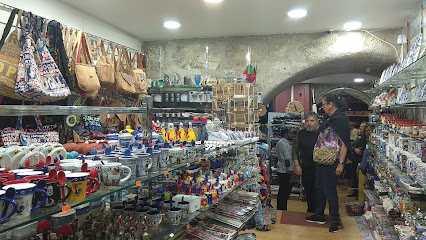
Natura Porto Ribeira
Explore the latest in Portuguese fashion at Natura Porto Ribeira, a charming boutique in the heart of Porto offering a unique shopping experience.
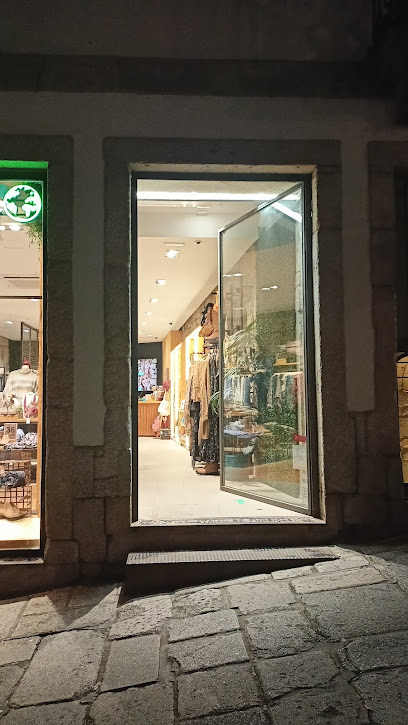
Portugalidades
Explore Portugalidades in Porto for unique gifts and authentic Portuguese crafts, capturing the essence of Portugal in every piece.
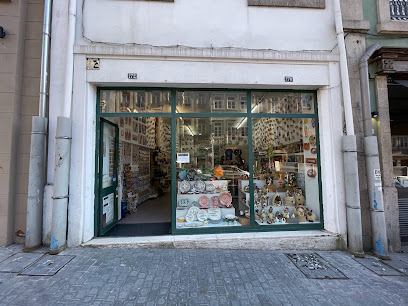
Sabores de Portugal
Explore the essence of Portuguese cuisine at Sabores de Portugal, a charming gift shop in Porto filled with local delicacies and unique souvenirs.
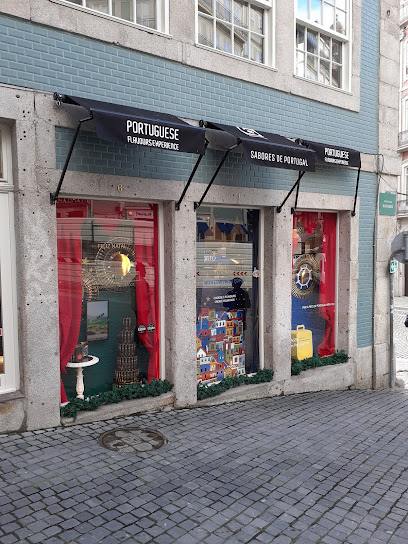
Tourist shop
Discover unique local crafts and souvenirs at this charming gift shop in Porto, a perfect stop for tourists seeking authentic Portuguese treasures.
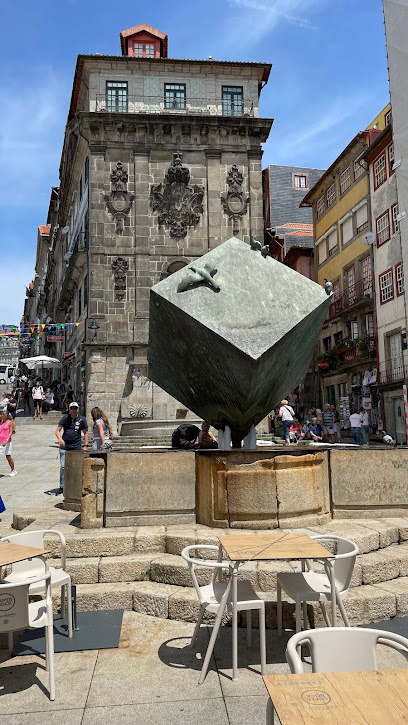
Gift Shop
Discover a delightful assortment of unique Portuguese souvenirs that capture the essence of Porto's vibrant culture.
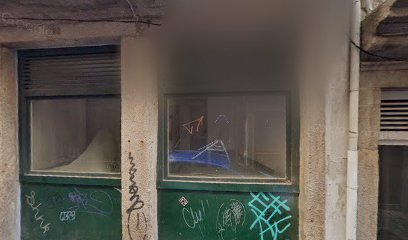
Essential bars & hidden hideouts
The Wine Box Porto
Savor the essence of Porto at The Wine Box, where exquisite tapas and fine wines come together in a charming bistro setting.
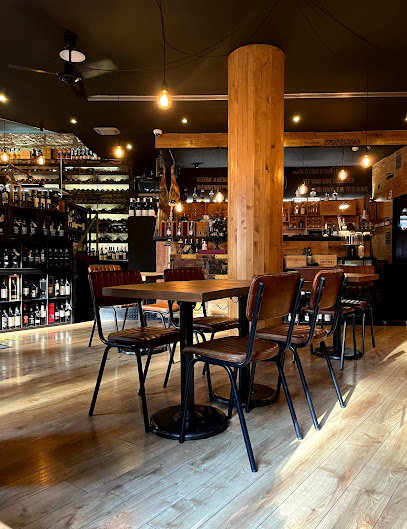
Wine Quay Bar
Discover the enchanting Wine Quay Bar in Porto – a perfect blend of exquisite wines and stunning riverside views.
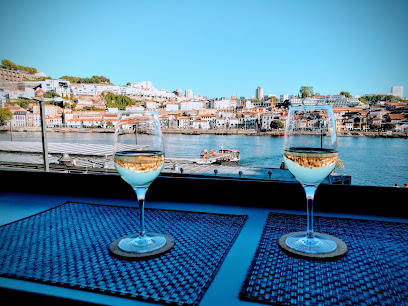
Ponte Pensil
Discover the charming Ponte Pensil bar in Porto, where vibrant ambience meets a diverse drink selection for an unforgettable night out.
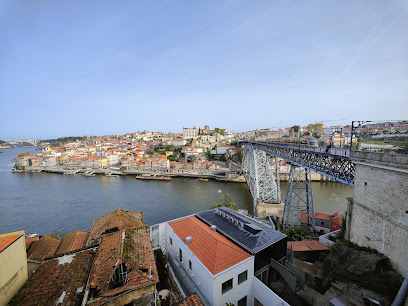
Ryan's Irish Pub
Discover the heart of Irish culture in Porto at Ryan's Irish Pub, where great food, drinks, and sports come together in a lively atmosphere.
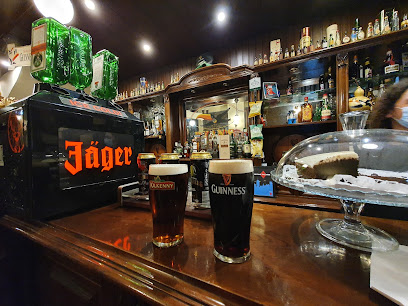
Curioso Cocktail Bar
Discover Curioso Cocktail Bar in Porto, where expert mixology meets a vibrant atmosphere for an unforgettable night out.
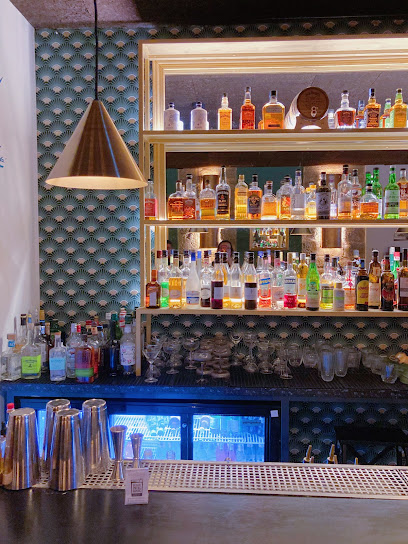
Botequim Nostalgic
Experience Porto's vibrant nightlife at Botequim Nostalgic, where great drinks meet a lively atmosphere in the heart of the city.
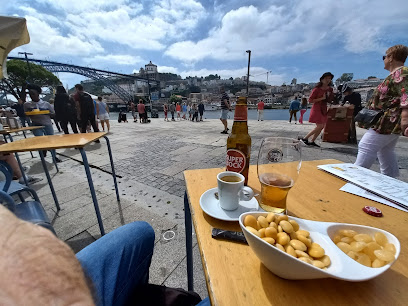
O Cais Bar
Experience the vibrant charm of Porto at O Cais Bar, where local flavors and warm hospitality create the perfect escape.
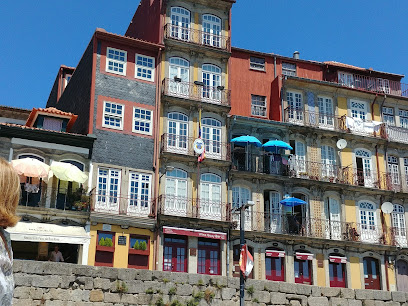
Art & wine
Discover the perfect blend of art and fine wines at Art & Wine, a top bar in Porto where culture and flavor meet.
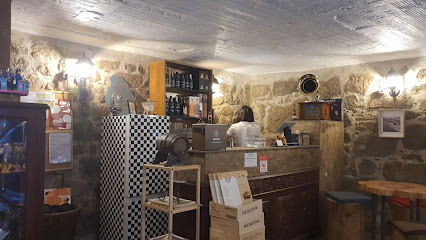
Br’s Bar
Discover Br’s Bar in Cais da Ribeira, Porto – where stunning river views meet vibrant nightlife in a delightful setting.
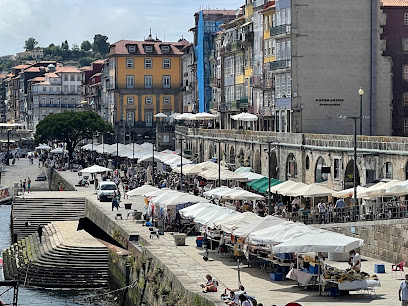
The Oldest Bar
Discover the historic charm and delicious grill flavors at The Oldest Bar, a must-visit destination in the heart of Porto.
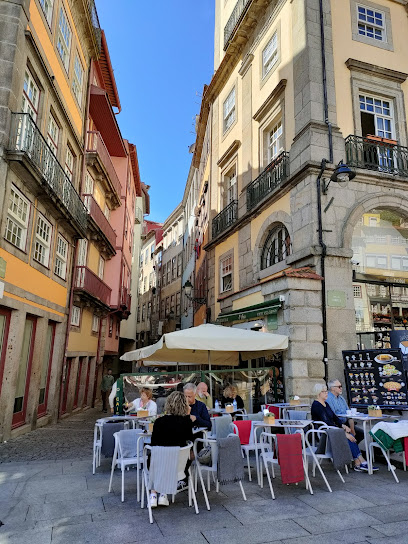
Local Phrases
-
- HelloOlá
[oh-lah] - GoodbyeAdeus
[ah-deh-oosh] - YesSim
[seem] - NoNão
[now] - Please/You're welcomePor favor
[pohr fah-vohr] - Thank youObrigado
[oh-bree-gah-doo] - Excuse me/SorryDesculpe
[deh-skool-peh] - How are you?Como está?
[koh-moh ehs-tah] - Fine. And you?Estou bem. E você?
[ehs-toh-ooh behn. eh voh-seh] - Do you speak English?Fala inglês?
[fah-lah een-glehsh] - I don't understandNão entendo
[now ehn-tehn-doo]
- HelloOlá
-
- I'd like to see the menu, pleaseGostaria de ver o menu, por favor
[goh-stah-ree-ah deh vehr ooh meh-noo, poor fah-vohr] - I don't eat meatNão como carne
[now koh-moh kahr-neh] - Cheers!Saúde!
[sah-oo-deh] - I would like to pay, pleaseGostaria de pagar, por favor
[goh-stah-ree-ah deh pah-gahr, poor fah-vohr]
- I'd like to see the menu, pleaseGostaria de ver o menu, por favor
-
- Help!Socorro!
[soh-koh-roh] - Go away!Vai embora!
[vah-ee ehm-boh-rah] - Call the Police!Chame a polícia!
[shah-meh ah poh-lee-see-ah] - Call a doctor!Chame um médico!
[shah-meh oong meh-dee-koo] - I'm lostEstou perdido
[ehs-toh pehr-dee-doo] - I'm illEstou doente
[ehs-toh doo-ehn-teh]
- Help!Socorro!
-
- I'd like to buy...Gostaria de comprar...
[goh-stah-ree-ah deh kohm-prahr...] - I'm just lookingEstou só a ver
[ehs-toh soh ah vehr] - How much is it?Quanto custa?
[kwahn-tooh koosh-tah] - That's too expensiveIsso é demasiado caro
[ee-soo eh dah-mah-see-ah-doo kah-roo] - Can you lower the price?Pode baixar o preço?
[poh-deh bahy-shahr ooh preh-soo]
- I'd like to buy...Gostaria de comprar...
-
- What time is it?Que horas são?
[keh oh-rahsh sah-oh] - It's one o'clockÉ uma hora
[eh oo-mah oh-rah] - Half past (10)Meia hora (10)
[meh-yah oh-rah (deh-ees)] - MorningManhã
[mah-nyah] - AfternoonTarde
[tahr-deh] - EveningNoite
[noy-teh] - YesterdayOntem
[ohn-tehm] - TodayHoje
[oh-zheh] - TomorrowAmanhã
[ah-mah-nyah] - 1Um
[oom] - 2Dois
[doh-ees] - 3Três
[trehs] - 4Quatro
[kwah-troh] - 5Cinco
[seen-koh] - 6Seis
[saysh] - 7Sete
[seh-teh] - 8Oito
[oy-toh] - 9Nove
[noh-veh] - 10Dez
[dehz]
- What time is it?Que horas são?
-
- Where's a/the...?Onde fica um/o...
[ohn-deh fee-kah oong/ooh...] - What's the address?Qual é o endereço?
[kwahl eh oo ehn-deh-reh-soo] - Can you show me (on the map)?Pode mostrar-me (no mapa)?
[poh-deh moh-strahr-meh (noo mah-pah)] - When's the next (bus)?Quando é o próximo (autocarro)?
[kwahn-doo eh oo proh-kssee-moh (ow-toh-kah-roo)] - A ticket (to ....)Um bilhete (para ...)
[oom bee-lyeh-teh (pah-rah ...)]
- Where's a/the...?Onde fica um/o...
History of Ribeira
-
Ribeira, one of the oldest neighborhoods in Porto, has its origins dating back to the Roman era. The area’s strategic location along the Douro River made it an essential port for trade and commerce. The name 'Ribeira' itself translates to 'riverbank', highlighting its historical connection to the river that has been central to Porto's development.
-
During the Middle Ages, Ribeira flourished as a bustling trading hub. The neighborhood became known for its lively markets and fishmongers, reflecting the maritime culture of the region. The construction of the medieval walls of Porto in the 12th century fortified the area, further establishing its importance as a center for commerce and defense.
-
The 15th and 16th centuries marked the Age of Discovery, where Ribeira played a vital role in the export of Port wine. The establishment of wine cellars along the riverbank allowed traders to store and ship their goods. This era solidified Porto's international reputation, with Ribeira serving as a gateway for merchants from across Europe and beyond.
-
With the rise of industrialization in the 19th century, Ribeira underwent significant changes. The construction of the iconic Dom Luís I Bridge in 1886 enhanced connectivity and commerce, linking Ribeira with the neighboring Vila Nova de Gaia, known for its wine lodges. This period also saw the development of new architectural styles, as many buildings along the waterfront were renovated or constructed to accommodate the growing trade.
-
In the late 20th century, Ribeira experienced a cultural renaissance, as efforts were made to restore and revitalize the neighborhood. The historic buildings, with their colorful facades and narrow streets, became a focal point for tourists. The area was classified as a UNESCO World Heritage Site in 1996, recognizing its significance in the broader context of Porto's history and culture.
-
Today, Ribeira is characterized by its vibrant atmosphere, bustling cafes, and lively nightlife. The neighborhood hosts numerous cultural events and festivals that celebrate the rich heritage of Porto. Local artisans, restaurants, and shops contribute to a thriving community that honors the past while embracing modernity, making Ribeira a must-visit destination for travelers seeking an authentic experience of Porto.
Ribeira Essentials
-
Ribeira is conveniently located in Porto, easily accessible from various neighborhoods. From the historic center (Sé, Aliados), it's a short walk downhill to the waterfront. If coming from further away, the São Bento train station is nearby, providing regional connections. The metro (Line A) from Casa da Música to São Bento connects you to the area. Buses also serve the region, with routes frequently stopping along Avenida dos Aliados.
-
Ribeira is a pedestrian-friendly neighborhood, making walking the best way to explore its narrow, winding streets. For longer distances, consider using trams or the metro; the closest metro station is São Bento. Taxis and ride-sharing services are available, but be mindful of traffic in the area. Bicycles can be rented from local shops, and there are designated bike lanes, although they are limited in the historic center.
-
Ribeira is generally safe for tourists; however, standard precautions are advisable. Petty crimes, such as pickpocketing, can occur, particularly in crowded areas, including near the riverside and popular viewpoints. Avoid the darker alleys after dark and be cautious in less populated areas. It's recommended to stay aware of your surroundings and keep valuables secured.
-
In case of emergency, dial 112 for police, fire, or medical assistance in Portugal. The nearest hospital is Hospital de Santo António, located a short distance from Ribeira. For minor health issues, pharmacies are available throughout the neighborhood. Always ensure you have travel insurance that covers emergencies.
-
Fashion: Do wear comfortable shoes for walking; cobblestone streets can be uneven. Don’t dress too casually, especially when dining in upscale restaurants. Religion: Do respect local customs and dress appropriately when visiting churches. Public Transport: Do validate your metro ticket before boarding. Don’t eat or drink on public transport. Greetings: Do greet locals with a friendly 'Olá' or 'Bom dia'. Don’t be overly formal; a casual approach is appreciated. Eating & Drinking: Do try local dishes, especially Francesinha and Port wine. Don’t be afraid to ask for recommendations from locals.
-
To experience Ribeira like a local, visit the Mercado Ferreira Borges for fresh produce and local delicacies. Enjoy a sunset stroll along the Douro River and stop by one of the many terraces for a glass of Port wine. Engage with local artisans, especially those selling traditional crafts. Explore the smaller, less-traveled streets for unique shops and eateries, and don’t hesitate to ask locals for hidden gems in the area.











